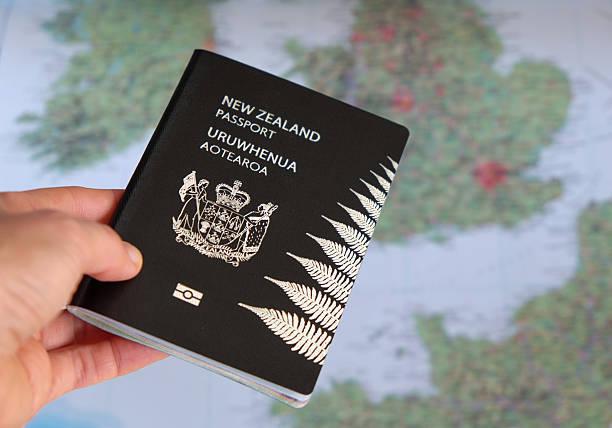
Introduction: The Ultimate “Plan B” Just Got a Major Overhaul
For years, New Zealand has held a reputation as the ultimate “Plan B” — a stable, secure safe haven for those seeking refuge from global uncertainty. Yet for many, the price of admission was simply too high.
That has just changed. New Zealand has overhauled its investor visa programme, making it significantly more affordable and accessible. While most headlines have focused on the lower investment thresholds, the most impactful details are those hiding in plain sight. For the discerning global investor, understanding these nuances is the difference between a simple transaction and a sophisticated long-term strategy.
This article highlights five of the most surprising and important takeaways from the new Active Investor Plus visa, going beyond the headlines to reveal what this change really means for international investors.
1. The Price Has Plummeted — and It’s Not Just Generosity
A Strategic Invitation During an Economic Downturn
The minimum investment required has been reduced from NZ $15 million to NZ $5 million for the “Growth” category. But this was not simply a friendly discount — it was a strategic economic manoeuvre born of necessity.
The previous, more expensive scheme was a policy failure, securing only a few dozen approvals since its last revision. This change comes at a time when New Zealand is facing its worst recession since 1991 and seeing record numbers of Kiwis depart — more than half of them citizens. In that context, the lower entry price is a deliberate effort to attract foreign capital and experienced investors at a critical economic juncture.
2. Your Time Commitment Is Essentially a Holiday
The Ultimate Flexible Safe Harbour
For the NZ $5 million “Growth” investment, the minimum stay requirement is only 21 days in New Zealand over the entire three-year period. For the NZ $10 million “Balanced” option, the requirement is 105 days over five years.
This remarkably light physical-presence requirement is a game-changer for active global entrepreneurs and investors who cannot afford to be tethered to one location for long periods but still require a high-quality, safe-harbour jurisdiction. It enables them to secure full residency rights for themselves and their families without the need to uproot their lives, businesses, or other commitments.
In essence, one needs to spend just 21 days in the country to maintain the visa — effectively the equivalent of a short holiday.
3. The “Permanent” in Permanent Residency Actually Means Forever
A Level of Permanence Equivalent to De Facto Citizenship
Once an investor meets the initial three- or five-year conditions and obtains a Permanent Residence (PR) visa, it is truly permanent. This is perhaps the visa’s most powerful feature. Unlike permanent residency in countries such as Australia or Singapore, which often rely on time-limited re-entry permits or travel facilities, New Zealand’s PR is a lifelong visa with no further travel or residency requirements to maintain it.
This provides a level of certainty and long-term stability that is exceptionally rare, amounting to a form of de facto citizenship. It offers a true, permanent safe haven that can be held in reserve indefinitely. Once obtained, it lasts for life — allowing the holder to return at any time, even decades later.
4. There’s a Four-Year Tax Holiday on Your Global Fortune
A Sophisticated Tool for Financial Planning — With a Catch
New Zealand offers a transitional resident regime that provides significant tax advantages for new residents. For the first 48 months after becoming a tax resident, individuals are generally taxed only on New Zealand-sourced income and on any worldwide income from personal services such as salaries.
Crucially, this means that income from foreign investments, overseas businesses, or other offshore assets is not taxed by New Zealand during this four-year period. However, for those aiming to obtain citizenship, there is an important detail: the special regime does not last quite long enough to achieve citizenship entirely on a tax-advantaged basis. It therefore serves as a valuable tool for structuring international affairs upon arrival but requires careful long-term tax planning.
5. The Big Caveat: “Approved” Does Not Mean “Guaranteed”
Understanding the Difference Between a Policy Check and a Financial Guarantee
While direct investments and managed funds in the NZ $5 million “Growth” category must be approved by New Zealand Trade and Enterprise (NZTE), this does not equate to a financial guarantee. Approved direct investments appear on an exclusive “Live Deals” platform, but this simply confirms that the investment meets the visa’s policy objectives.
NZTE’s role is to verify that a business is operating in New Zealand and complies with relevant regulations — it does not conduct a financial assessment or endorse the investment’s soundness. The risk of capital loss remains entirely with the investor.
As some commentators have warned, questions remain about what will happen if a government-approved fund were to fail and investors lost money. Approval indicates policy alignment, not investment security.
Conclusion: The World’s Most Sophisticated “Plan B”?
New Zealand’s revamped investor visa is far more than a transactional route to residency. Its true power lies in its balance of opposites: a sharply reduced entry cost motivated by economic necessity; a light, almost holiday-like time requirement enabling global mobility; a genuinely permanent residency unmatched by peer nations; and a significant, time-bound tax advantage that rewards thoughtful planning.
With its unique blend of flexibility, permanence, and strategic financial structuring opportunities, New Zealand’s re-imagined Active Investor Plus visa may well be the world’s most intelligent “Plan B” for discerning global citizens.
— Hamish Blackman, Director
Please note: Communications are for informational purposes only and do not constitute an offer or solicitation to invest. All investment opportunities are available exclusively to wholesale investors as defined under the Financial Markets Conduct Act 2013.